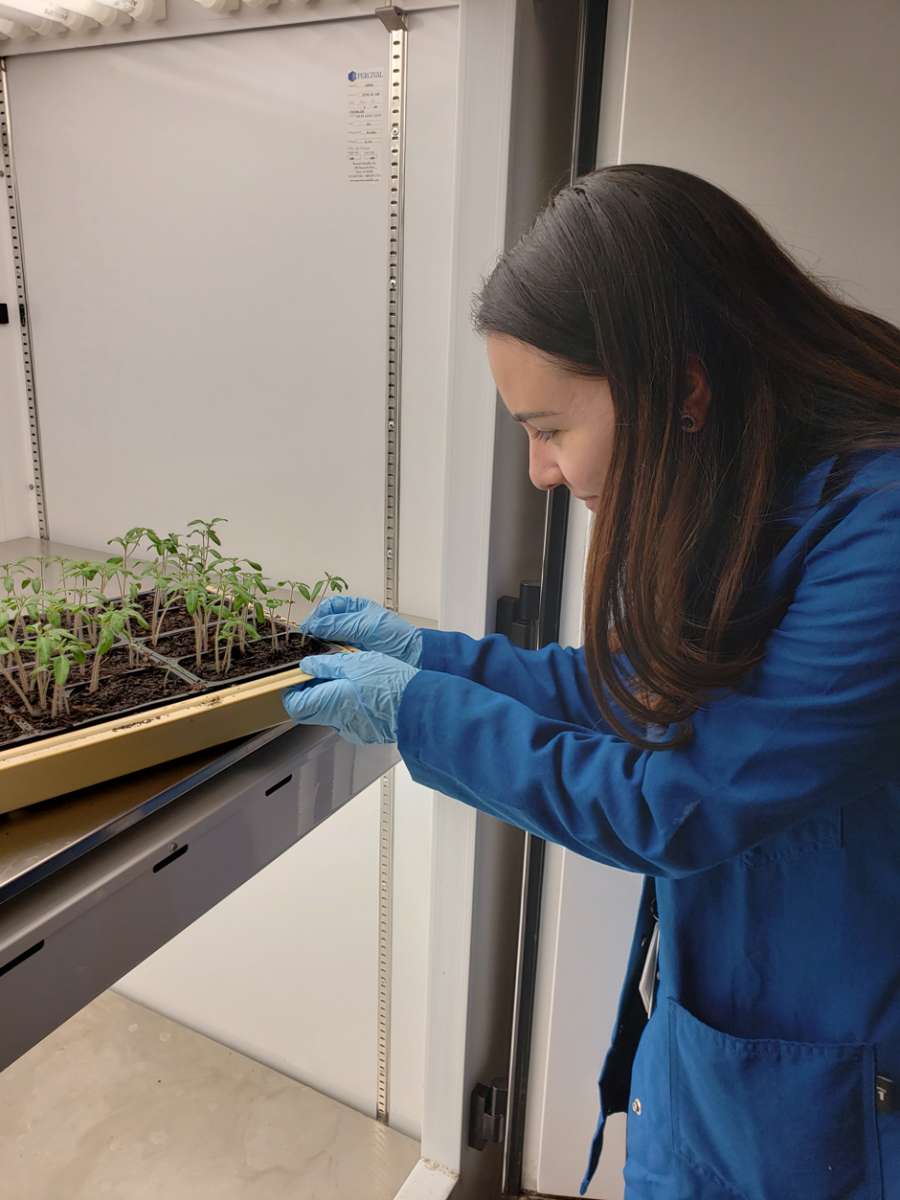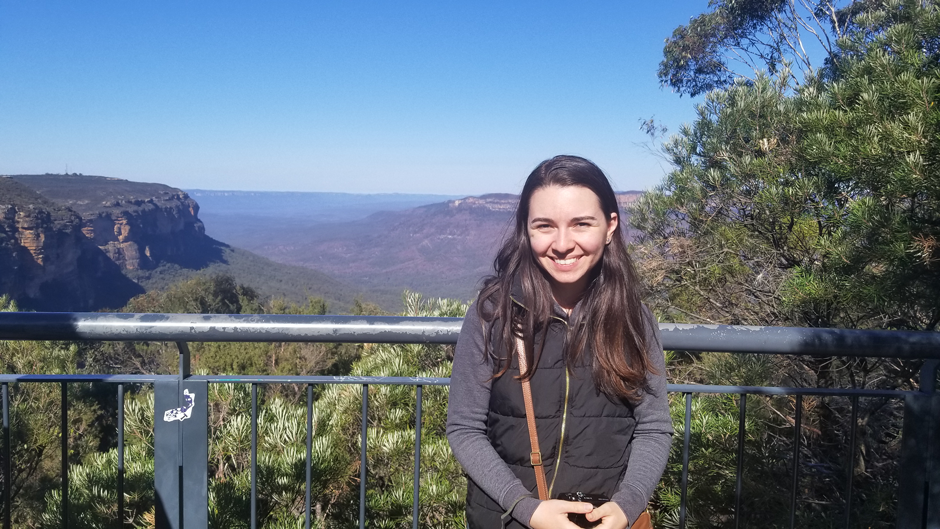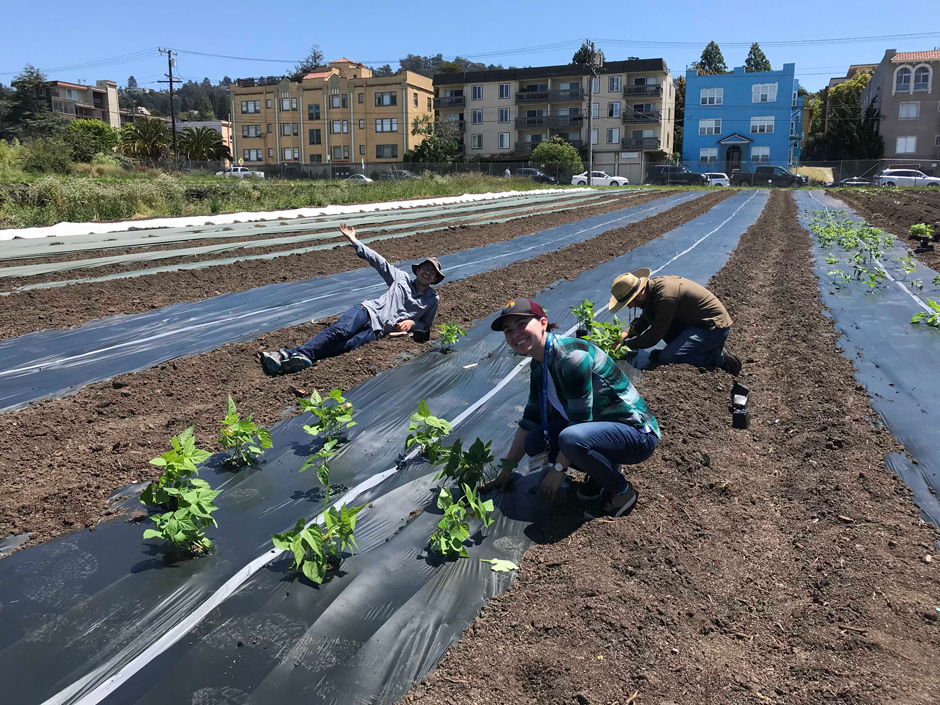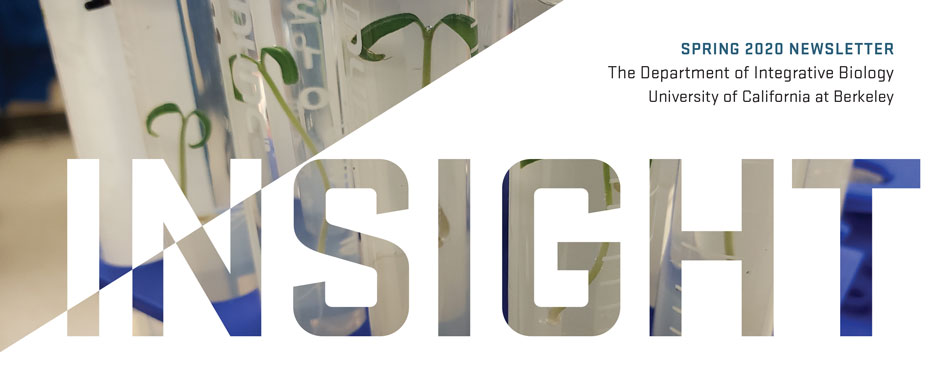 |
PhD candidate Cathy Hernandez is studying the evolution of bacterial resistance in plants. |
By Kirsten Mickelwait
Catherine “Cathy” Hernandez loves studying parasites. She is fascinated by their interactions and appreciates how rapidly they grow in the lab. Because they can evolve so quickly, they make great subjects for testing questions about evolution. So it comes as no surprise that she has focused her doctoral work on viruses which, like other obligate parasites, cannot reproduce without a host.
A fifth-year PhD candidate in the lab of evolutionary biologist Dr. Britt Koskella, Hernandez is exploring the evolution of bacterial resistance to bacteriophage — a virus with a bacterial host — in plants. She’s already shown through a series of experiments that, although bacteria rapidly evolve to be resistant to phages in a test tube, this resistance doesn’t spread in bacterial populations growing within a leaf. Her work has important implications for phage therapy — the use of phages to treat bacterial diseases — in agriculture. Hernandez, who is a National Science Foundation Graduate Research Fellowship Program fellow, co-authored a paper on bacteriophage resistance evolution that was published in Evolution, the International Journal of Organic Evolution in August 2019.
Raised in Florida, Hernandez did her undergraduate studies at the University of Miami and was drawn to attend UC Berkeley for graduate school specifically to work with Koskella as her PI. She was intrigued by Koskella’s various research questions around tritrophic interactions: when three trophic levels — in this case plants, bacteria, and phage — impact each other. “I love that she’s asking questions about interactions at multiple levels,” Hernandez says. “She’s a very creative scientist and thinks carefully about many aspects of ecology and evolution.”
 |
Hernandez exploring the Blue Mountains of Australia during her internship at Monash University in Melbourne, Austraila. |
Hernandez enjoys the variety and depth of Berkeley outside of the lab as well. “You have resources for almost anything you’d want to do here,” she says. “There are so many activities to enrich your scholarly experience. Because this university is so big, there’s a wealth of knowledge and expertise. There’s probably someone on this campus who can help solve any problem you might come across in your research.”
In addition, since coming to Berkeley, she participated in the Australia-Americas PhD Internship Program with Dr. Jeremy Barr, head of the Bacteriophage Biology Research Group at Monash University in Melbourne, Australia. With about a year left before completing her PhD, Hernandez eventually hopes either to apply for a tenure-track faculty job or to do research at a USDA pathogen lab.
At Berkeley, Hernandez has also valued being able to mentor undergraduates and help them develop their scientific skills. She’s found them to be highly motivated trainees and has learned a lot by tailoring her mentoring style to the needs of a diverse undergrad community.
To students headed in a similar direction, she advises that “reminding yourself why you’re passionate about your research questions can keep you motivated during the tough times.” She recounts how she had to repeat her first experiment three times because the results were inconclusive. “Persistence is key, because it’s never a straightforward process.”
 |
|
Hernandez planting in the field. |
Masthead Image: Inoculated tomato seedlings from Hernandez's research.
Back to Main Spring 2020 Newsletter Page







